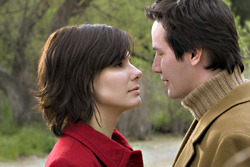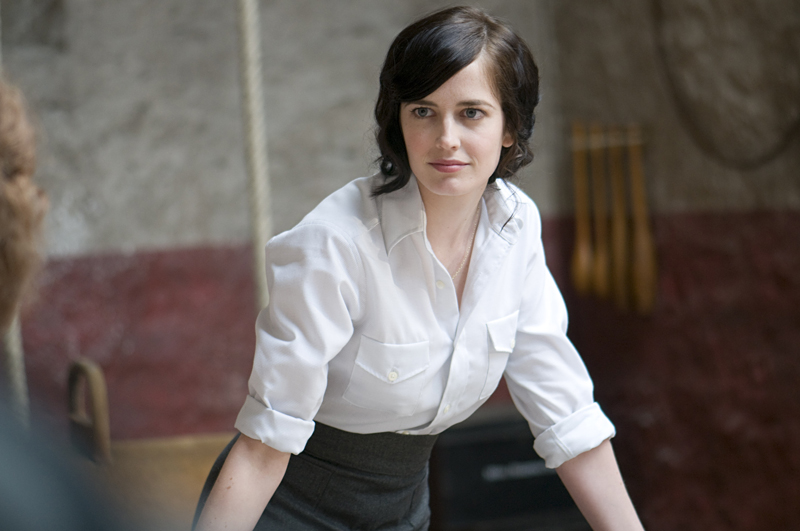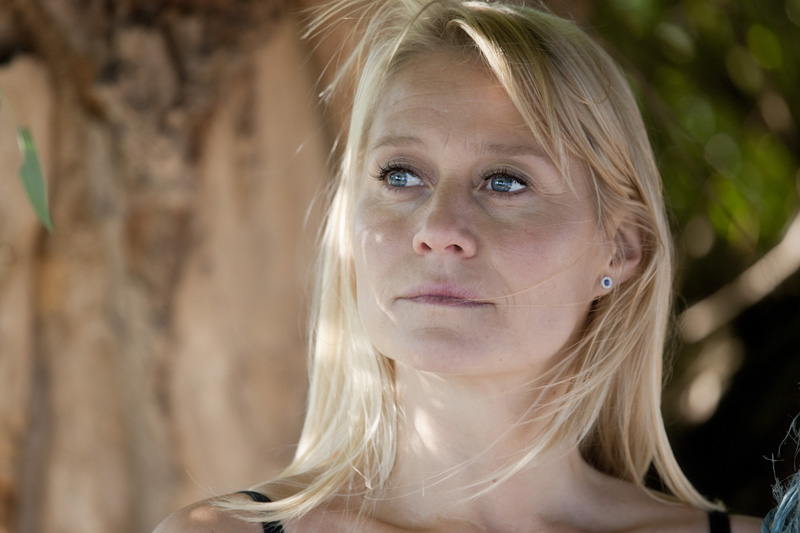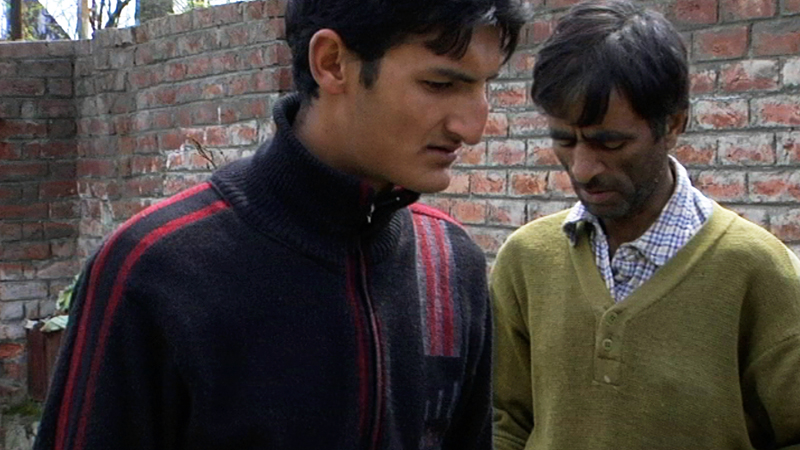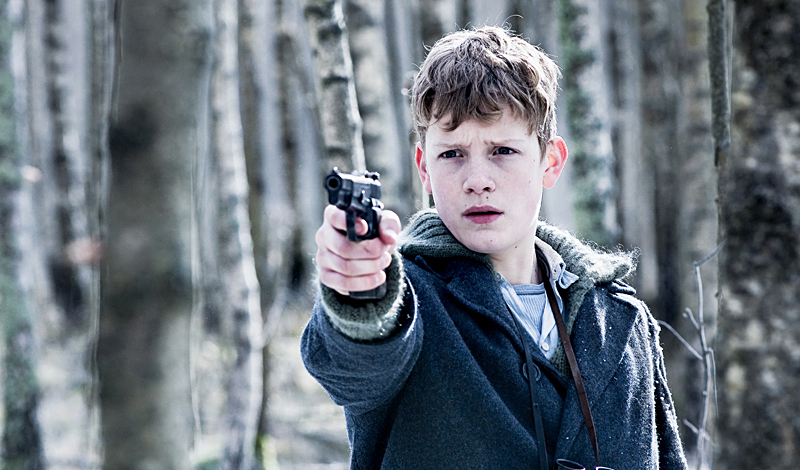Forget what a fun couple Sandra Bullock and Keanu Reeves were in Speed. In this slow and heavy kickoff to the summer romance season, they play the mopiest lovers to hit the big screen since Tony and Maria channeled Romeo and Juliet on the fire escapes of New York City. Bullock is rather good as a lonely Chicago physician; she ekes out the quiet suffering of an ordinary woman with an appealing lack of fuss that recalls Jennifer Aniston in The Good Girl or Michelle Pfeiffer in Frankie and Johnny. Without action and special effects to prop him up, Reeves is his vaporous self as an unfulfilled architect with oedipal issues. The pair shares a lovely modernist lakeside house and a perfect storm of love letters, except that he’s in 2004 and she’s in 2006—a predicament that creates all manner of difficulties, not the least of which is the groan and creak of surplus contrivance as the plot strains to bring an epistolary love affair from the twilight zone into the corporeal realm.
Outside the house sits an unusually gifted mailbox whose red flag pops up like a waggish erection with the arrival of every handwritten missive from one lover to the other. And the notes come so thick and fast and lugubrious (while someone croons quietly in French on the soundtrack, which always makes me nervous), you may wish for the occasional Sharper Image catalog to lighten things up. Based on the 2000 South Korean sci-fi romance Il Mare and flimsily directed by Argentinean filmmaker Alejandro Agresti (Valentín), House may be the most convoluted film ever made about people in glass houses.
